'Children of Men' by Alfonso Cuarón (2006)
S. Andrew: Cuaron’s direction and Emmanuel Lubezki’s cinematography elevate this narrative into something visceral. The long takes, often chaotic, unbroken, and immersive, create an almost documentary-like realism.
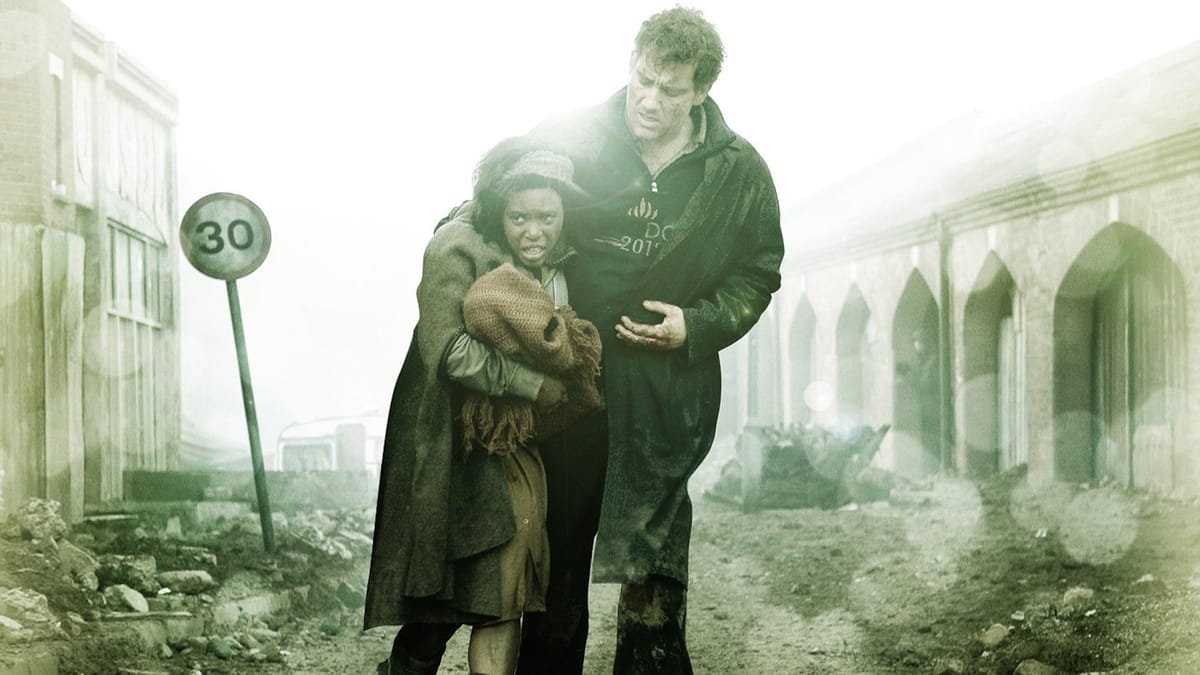
Watched by S. Andrew at the Saturday Film Club
“The Muslim community demands an end to the army’s occupation of mosques.”
“British borders will remain closed, and deportation of illegal immigrants will continue.”
These are the opening words of Alfonso Cuaron’s science fiction masterpiece, Children of Men. Delivered like a dreary news bulletin, they could be mistaken for today’s headlines. Though released in 2006 and set in 2027, it can seem like we are far closer to this dystopian world than the world when it first premiered. This was how Alexei Toliopoulos introduced the screening at the inaugural Saturday Film Club at the Sydney Opera House, with the thought that the film feels less like speculative fiction and more like a chilling reflection of our present. And as I sat in that space, I couldn’t help but reflect on how prescient this film has become.
Children of Men is set in a world unravelled by global infertility. For nearly two decades, no child has been born. Governments have collapsed, borders have closed, and many have tried to flee to Britain seeking a better life while their own countries descend into chaos. Broadcast to its citizens as one of the last functioning nations, Britain clings to a brittle semblance of order through a brutal fascist government.
Theo (Clive Owen), a former activist turned government drone, is numbed by grief and disillusionment. When he’s asked to help transport Kee (Clare-Hope Ashitey), a young refugee miraculously pregnant after nearly two decades, he’s reluctantly pulled into a mission that could reignite hope for humanity. His mission is avoiding capture by both the British government and the militant rebellion forces vying for power and deliver Kee to the ‘Tomorrow’, a clandestine offshore science vessel that may offer sanctuary and a future for humanity.
Prior to Theo commencing this journey, he visits his cousin Nigel (Danny Huston), a high-ranking minister in the fascist British government. As Nigel overlooks the decrepit city of London in his megalomaniacal metropolis, Theo asks how he copes with the futility of life in a world that will inevitably become nothing but abandoned buildings. Nigel’s response is obvious: he chooses not to think about it. His answer reveals the detached and privileged life he lives while insulated from suffering. Nigel’s world is curated, sterile, and safe, while the society beneath him combusts. It’s a reflection not only of political elites but also of Theo himself, who begins the film as a man dulled by alcohol and apathy. But through Kee’s journey, Theo begins to confront the world he’s ignored. He reclaims his desire to fight against his oppressors, and chooses to act, not just for Kee, but for the possibility to create a better future.
Cuaron’s direction and Emmanuel Lubezki’s cinematography elevate this narrative into something visceral. The long takes, often chaotic, unbroken, and immersive, create an almost documentary-like realism. These sequences put the audience at the centre of this dystopia. They make us feel it. In the infamous uprising sequence in the refugee city, Theo and Kee navigate a crumbling apartment block as tanks roll through the streets and militant rebel forces clash in a desperate bid for control. Blood splatters on the camera as the British army mow down countless civilian lives. They cling at their loved ones that have been slaughtered or dismembered. They cling at their crucifixes. They place their forehead on the ground and use their final moments to pray for hope. The imagery is gut-wrenching and hauntingly familiar: armed resistance groups, state-sanctioned violence, and civilians mercilessly slaughtered as they’re caught in the crossfire. It’s not fiction, it’s a reflection of the footage we’ve seen for decades now, from Iraq, Afghanistan, Syria, Gaza, and elsewhere.
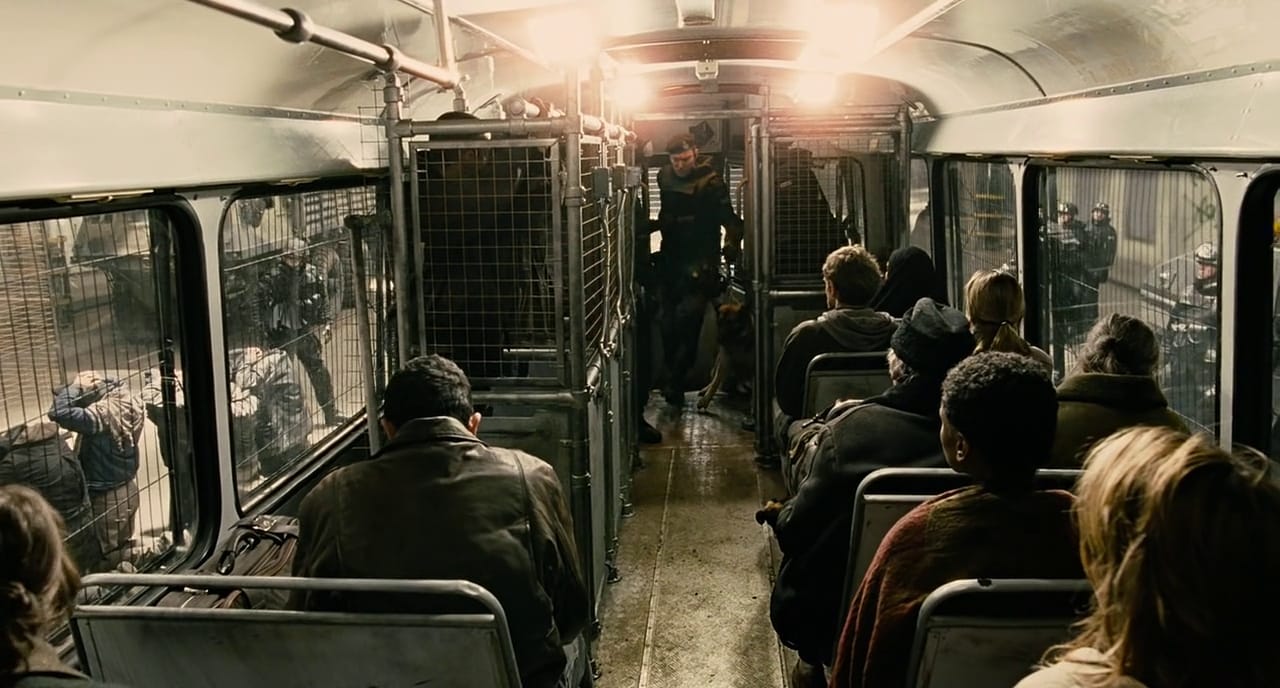
In an earlier scene, refugees are stripped naked, held at gunpoint, and herded into cages. These images echo the cruelty of immigration detention under Donald Trump’s administration. This dystopian Britain reflects Western policies that weaponise fear and nationalism, treating immigrants as collateral damage in a larger struggle for political dominance.
While growing ever more reflective of our reality, the actions of this dystopian British government were alive and well during the film’s creation. The rampant presence of Islamophobic propaganda that surged in the West after 9/11: from the inhumane ‘Pacific Solution’ under John Howard’s government, to the brutal images of George W Bush’s ‘War on Terror’. These images were the reality for many people. The tanks, the checkpoints, the indiscriminate violence, they’re not metaphors, they are the real experiences of so many subjugated by imperialist violence. During the post-screening discussion, guest host Zach Ruane surmised that Cuaron conceives his dystopian narrative by transposing the suffering of one region onto a region more familiar to the intended audience. By placing these global traumas within a dystopian Britain, the film forces Western audiences to confront uncomfortable truths, that these atrocities are shaped by the very privileges and systems they benefit from; realities they might otherwise ignore. Though framed as science fiction, Children of Men’s truth is its reflection of the West’s complicity in the conditions it portrays.
The transposition of real-life imagery becomes even more explicit when Theo and Kee enter the refugee city. The walls are covered in graffiti, all with the same word, the Arabic word ‘intifada,’ referencing the two Palestinian uprisings against Israel’s ongoing illegal occupation of their land. Syd, the militant police officer who smuggles them in, wears a Palestinian kuffiyah to disguise himself in the crowd of refugees. These details are not incidental. They are deliberate references to a decades-long struggle against Israel’s settler colonial practices. By embedding Palestinian iconography into the film’s visual language, Cuaron draws a karmic line between Britain’s fictional collapse and the real-world oppression of Palestinians since 1948. Where the very mechanisms of control and violence it once exported, now consume the empire itself.
At one of the film’s most beautiful moments, Kee walks through a war-torn building as soldiers and rebels pause in reverence while she cradles her distressed newborn. The gunfire stops. The chaos is silent. For a moment, life is sacred. If this scene were released today, it might be dismissed as too overt in its message. But we live in a world where Palestinian parents are forced to pull the lifeless corpses of their infant children from the rubble of a building that was once their home. We live in a world where the Israel Defence Force can commit these unspeakable, heinous acts and face no consequences. The idea that a child could halt violence feels implausible now. But Cuaron insists on this moment. He wants us to remember that life, in its purest form, is worth protecting. It’s a powerful vision of humanity, but one we’ve strayed from.
Children of Men does offer legitimate hope within its grim forecast for our reality. Change is possible. It doesn’t require grand gestures, only that we act within our own capacity to create that change. Theo’s journey is not heroic in the usual sense. He’s reluctant, tired, and broken. But he chooses to act in the moment when he knew he could make a difference. He is fighting for a future that is uncertain, a future he might not even be alive to witness. And with the help of the selfless people that he encounters, he becomes a small, but integral piece of the puzzle in the creation of a more just, equitable world.
We can all be Theo. We can recognise the privileges we hold, and the oppression we’ve ignored. And we can choose to do better, not just for ourselves, but for those who have been silenced, displaced, and forgotten. Change can begin with the simplest actions, grounded in empathy and intention. Like Theo and Kee, we push through the rubble and wait for the boat, knowing we’ve done all we could to make a better Tomorrow possible.
As I stepped out of the Sydney Opera House, I ruminated on the importance of spaces like this, where art is collectively felt and shared. Curated by Alexei and Zach, our discussion reflected on how important and complex this film is, each audience member took a different social or political message away with them. My interpretation was just one of many in the crowd. It highlights just one of many messages you could draw from this film. In sharing and reflecting our views, the film becomes a deeper, more fulfilling viewing experience. That’s the joy of sharing cinema, and I’m grateful to have experienced it.
Saturday Film Club is hosted by Alexei Toliopoulos at the Sydney Opera House. The next session will be Bram Stoker's Dracula (Francis Ford Coppola, 1992) on Saturday 1 November.
Fleapit Pick of the Week
The Sydney Underground Film Festival takes place 11-14 September at Dendy Newtown. Enjoy Aussie indies like Snatchers or the Home-baked short films, scented cinema with UHF, a cult-classic screening of Xanadu or the sure-to-be-wild opening night with Queens of the Dead. The full program is here.
Screenings: Thursday 11 September - Wednesday 17 September
Liberation Cinema
Kings And Extras: Digging for a Palestinian Image (Azza El-Hassan, 2004)
Tuesday
Miya Miya Film Club
Joyland (Saim Sadiq, 2022)
Wednesday (SOLD OUT)
Slippery Screenings
The Death of Empedocles (Daniele Huillet & Jean-Marie Straub, 1987)
Friday
Sydney Underground Film Festival | 11-14 September | selected highlights
Queens of the Dead (Tina Romero, 2025)
Opening Night Gala
Thursday
Snatchers (Craig Alexander & Shelly Higgs, 2025)
w/ Q&A
Saturday
Yellow House Afghanistan (George Gittoes, 2025)
Director's Cut w/ Q&A
Sunday
Fucktoys (Annapurna Sriram, 2025)
Closing Night Gala
Sunday
Hayden Orpheum | selected highlights
Spirited Away (Hayao Miyazaki, 2001)
Thursday
Boogie Nights (Paul Thomas Anderson, 1997)
Friday
Perfect Blue (Satoshi Kon, 1997)
Saturday
But Also John Clarke (Lorin Clarke, 2025)
Saturday & Sunday
Kangaroo Island (Timothy David Piper, 2025)
Q&A
Tuesday
Golden Age Cinema | selected highlights
Lesbian Space Princess (Emma Hough Hobbs & Leela Varghese, 2025)
Friday & Sunday
The Empty Beach (Chris Thomson, 1985)
Sunday
Went Up The Hill (Samuel Van Grinsven, 2025)
w/ an introduction from Samuel Van Grinsven
Wednesday
Ritz Cinemas, Randwick | selected highlights
Lesbian Space Princess (Emma Hough Hobbs & Leela Varghese, 2025)
Daily
But Also John Clarke (Lorin Clarke, 2025)
Daily
Blue Sun Palace (Constance Tsang, 2024)
Panorama of Chinese Film
Sunday
Paul Thomas Anderson: One Banger After Another (link)
Hard Eight (1996)
Monday
Boogie Nights (1997)
Tuesday
Magnolia (1999)
Wednesday
Robert Altman Retrospective (link)
A Prairie Home Companion (2006)
Thursday
Cult Classics (link)
Re-Animator (Stuart Gordon, 1985)
Saturday & Monday
Celluloid Film (link)
Wake in Fright (Ted Kotcheff, 1971)
Friday
Classic Matinees (link)
The Great Escape (John Sturges, 1963)
Saturday & Monday
Make It Musical (link)
Inside Llewyn Davis (Joel & Ethan Coen, 2013)
Sunday & Wednesday
Meet Cute (link)
Muriel's Wedding (P.J. Hogan, 1994)
Tuesday
Dendy Newtown | selected highlights
Lesbian Space Princess (Emma Hough Hobbs & Leela Varghese, 2025)
Daily
Cells Out (link)
The Matrix (Lana & Lilly Wachowski, 1999)
Thursday
Night Shift (link)
To Live and Die in L.A. (William Friedkin, 1985)
Daily
Palace Cinemas | selected highlights
Lesbian Space Princess (Emma Hough Hobbs & Leela Varghese, 2025)
Daily
But Also John Clarke (Lorin Clarke, 2025)
Daily
Cult Vault (link)
Desperately Seeking Susan (Susan Seidelman, 1985)
Monday
Matinee Memories (link)
The Tales of Hoffmann (Michael Powell & Emeric Pressburger, 1951)
Saturday
Art Gallery of NSW
Focus on queer 中文 cinema
Green Snake (Tsui Hark, 1993)
Saturday
Silent film and live music
Limite (Mário Peixoto, 1931) & Worlds Only
Sunday
Brazil! Brazil! A century of cinema
We Are Also Brothers (José Carlos Burle, 1949)
Wednesday

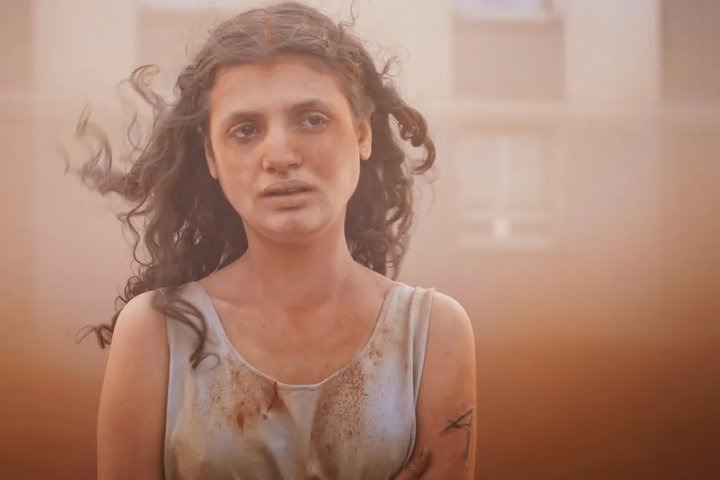
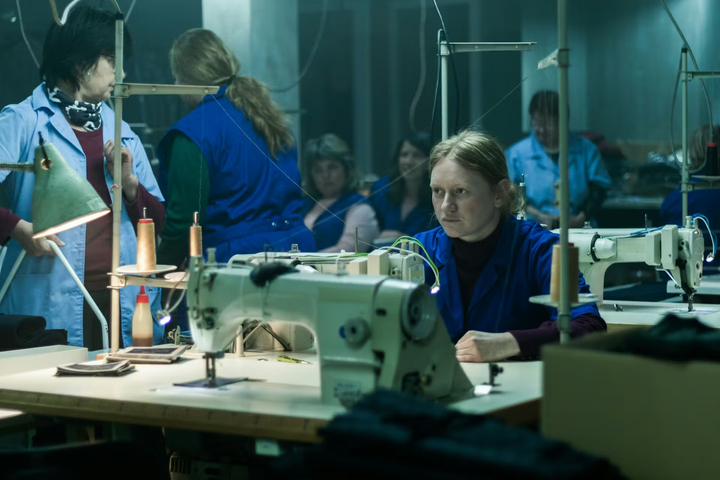
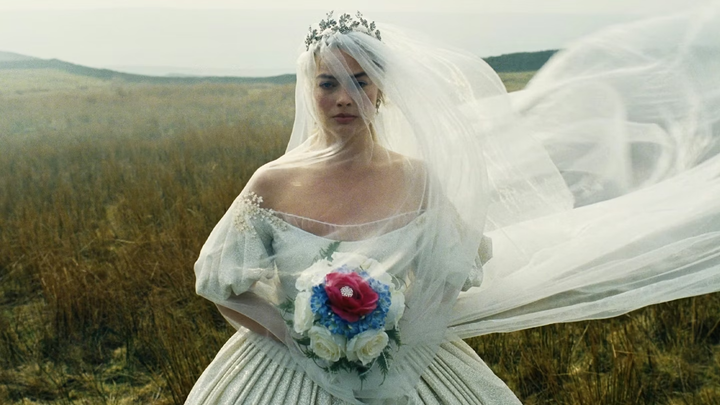
Comments ()